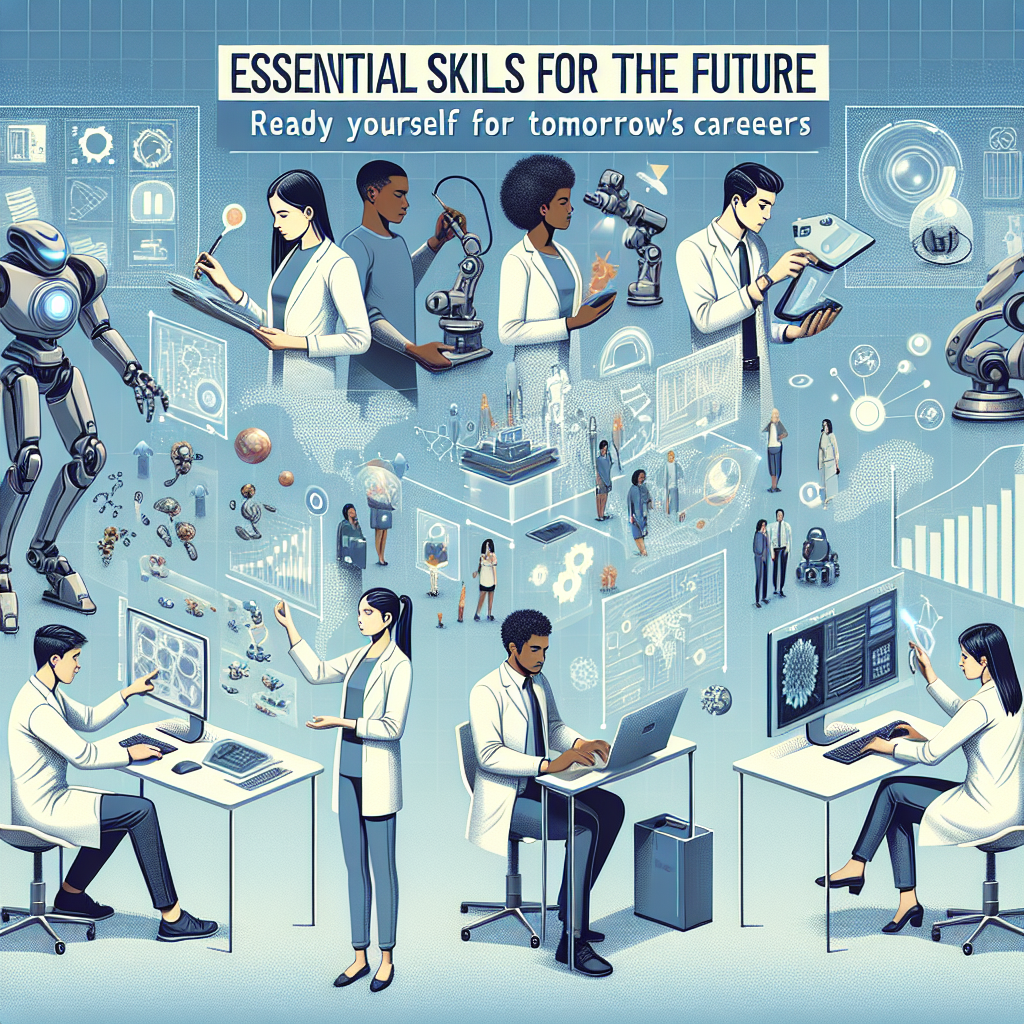As we enter a new era defined by swift technological progress, climate change, and shifting societal requirements, the job market is experiencing noteworthy transformations. The skills essential for workers today may become entirely different tomorrow. To succeed in this fluctuating environment, both individuals and organizations must emphasize the development of key skills that will define the future workforce.
The Evolving Work Landscape
The advent of automation, artificial intelligence (AI), and remote work has dramatically changed conventional job structures. Many positions that were common a decade ago have either vanished or evolved, while new careers continue to arise.
A report from the World Economic Forum anticipates that by 2025, 85 million jobs might be lost due to a shift in labor dynamics between humans and machines; however, 97 million new roles could emerge that better align with this new division of labor. This highlights an urgent need for reskilling and upskilling efforts.
Crucial Skills for Tomorrow’s Workforce
1. Digital Competence
In our increasingly digital age, digital competence is essential. From basic computer literacy to advanced data analysis, mastery of digital tools and technologies is vital. Workers need to be adaptable with a variety of software and platforms, and possess the ability to quickly pick up new technologies.
2. Analytical Thinking and Problem-Solving
As automation takes over routine activities, analytical thinking and problem-solving will become critical. Employers will seek individuals capable of evaluating complex situations, making informed choices, and crafting innovative solutions. These skills will enable workers to adapt and remain indispensable in ever-evolving contexts.
3. Creative and Innovative Mindsets
Creativity is often regarded as a uniquely human characteristic that machines cannot imitate. As AI advances, the ability to think creatively will set job seekers apart. Companies will benefit from individuals who can generate fresh ideas and innovative strategies, pushing boundaries and challenging norms.
4. Emotional Intelligence (EI)
In a world increasingly governed by technology, emotional intelligence becomes essential. EI involves understanding and managing one’s emotions as well as empathizing with others. Strong interpersonal skills can boost collaboration, enhance leadership effectiveness, and foster positive workplace cultures.
5. Flexibility and Resilience
As change accelerates, the ability to adapt quickly to new circumstances is critical. Workers must cultivate a growth mindset, viewing change as a chance for personal development rather than a challenge. Resilience equips individuals to navigate setbacks and maintain motivation in achieving their objectives.
6. Teamwork and Collaboration
With the rise of remote and hybrid work settings, collaboration skills have never been more vital. Effective communication, conflict resolution, and the capacity to work within diverse teams are crucial as individuals unite from various locations and backgrounds.
7. Data Literacy
As organizations increasingly depend on data-driven insights, data literacy is becoming a fundamental skill. This encompasses the ability to interpret, analyze, and derive meaningful insights from data, enabling workers to contribute to well-informed strategic decisions.
Preparing for the Future
Educational institutions, businesses, and governments play a crucial role in readjusting the workforce for what lies ahead. Strategies include:
1. Revamping Educational Programs
Educational curricula must adapt to focus on relevant skills, emphasizing STEM (science, technology, engineering, and mathematics) alongside soft skills training.
2. Promoting Lifelong Learning
Fostering a culture of lifelong learning empowers individuals to continuously enhance their skills and maintain relevance in the job market. Online platforms, workshops, and certification programs can provide accessible learning opportunities.
3. Industry-Education Partnerships
Collaborations between businesses and educational entities can align curricula with market demands. These partnerships can also facilitate internships and apprenticeships, offering practical experience to learners.
4. Promoting Diversity and Inclusion
Building a diverse workforce enhances creativity and innovation. Organizations should prioritize inclusive hiring practices and cultivate environments where all employees feel valued and encouraged to share their ideas.
Conclusion
The future of work may be unpredictable, but one thing is certain: the skills in high demand are evolving. By focusing on digital literacy, critical thinking, emotional intelligence, and flexibility, workers can prepare for success in the shifting job market. Through collaborative efforts across all sectors, we can cultivate a workforce well-equipped to address the challenges and opportunities ahead. Preparing for tomorrow begins today, and investing in these essential skills is a step toward a brighter and more sustainable future.

